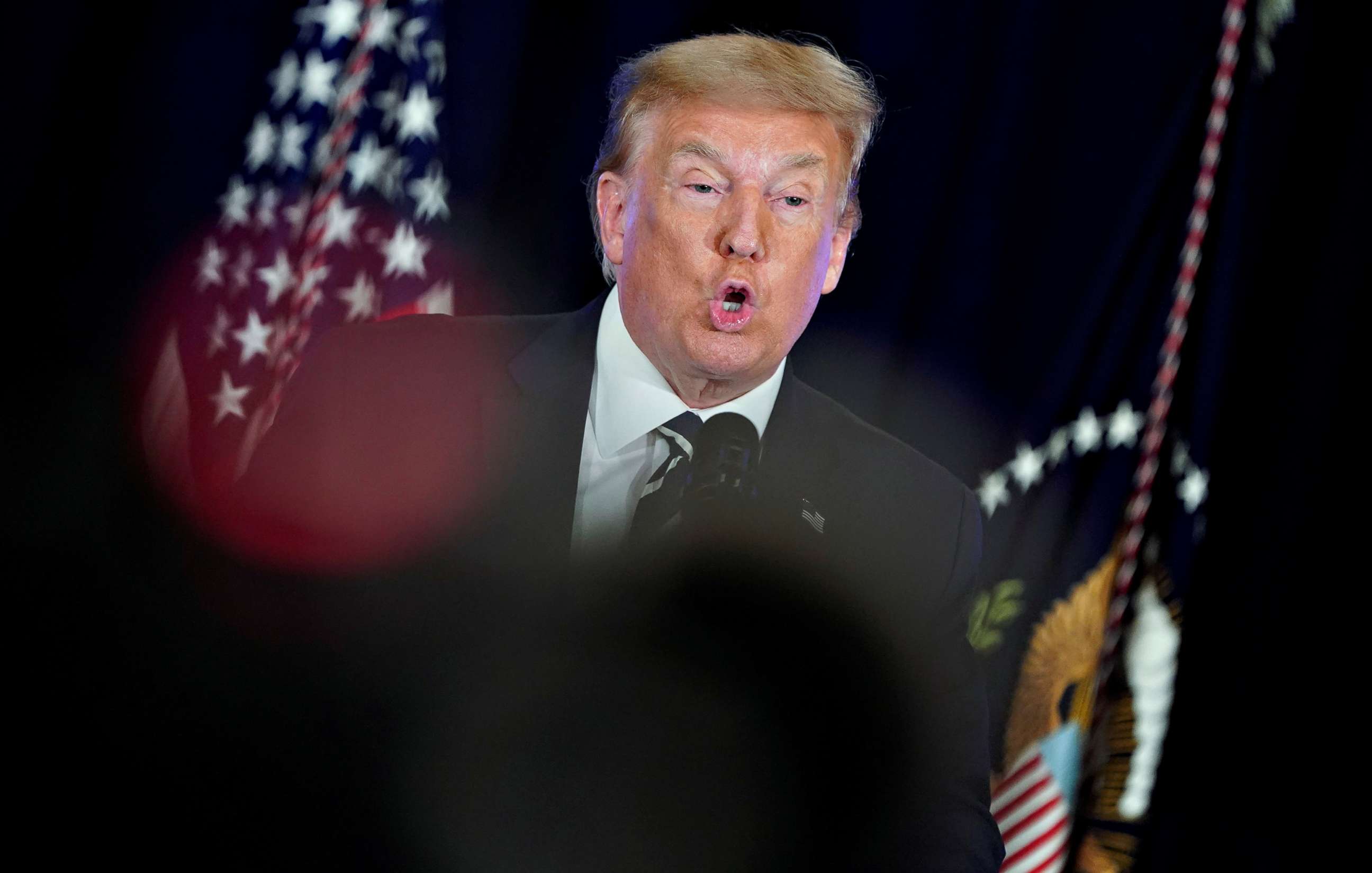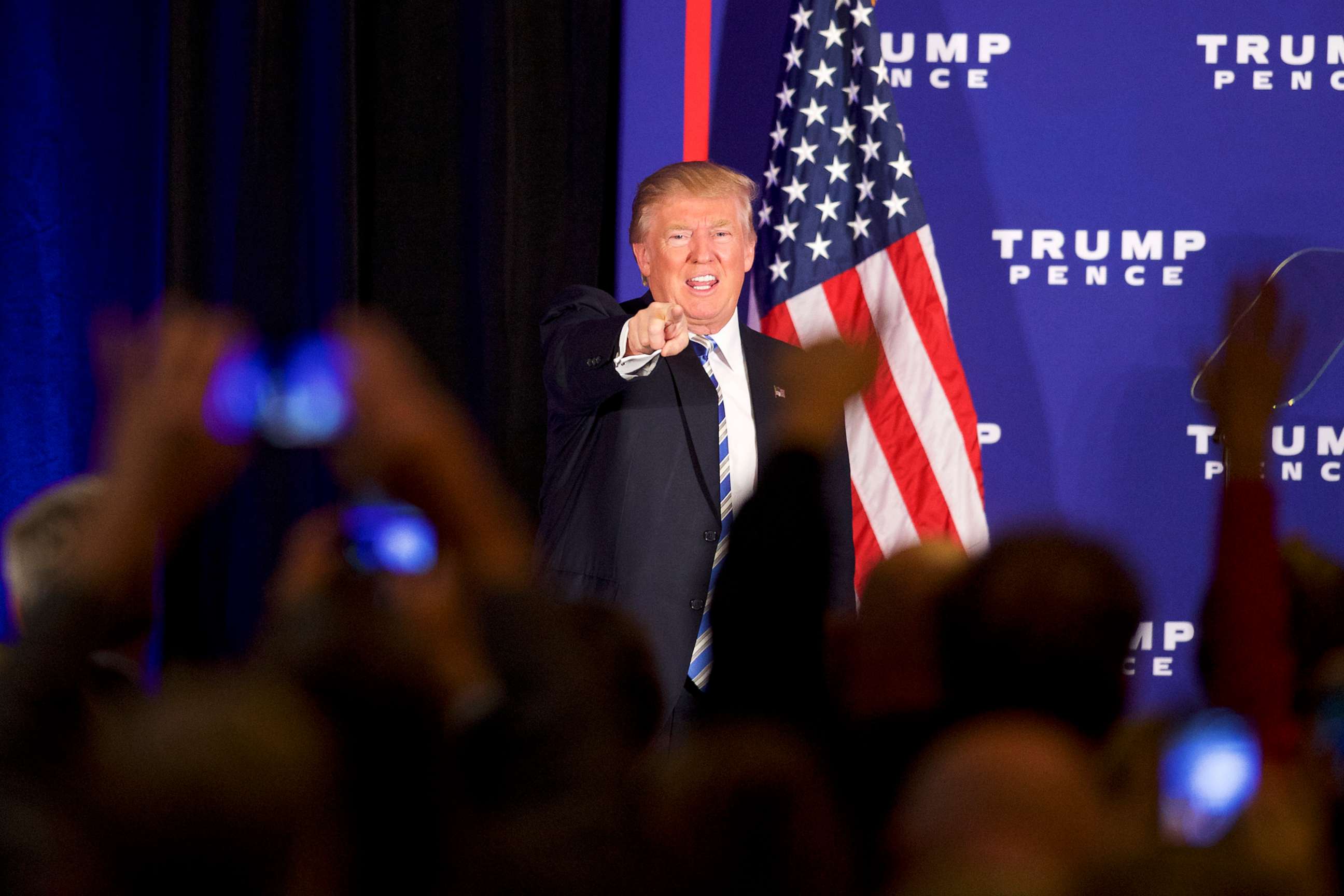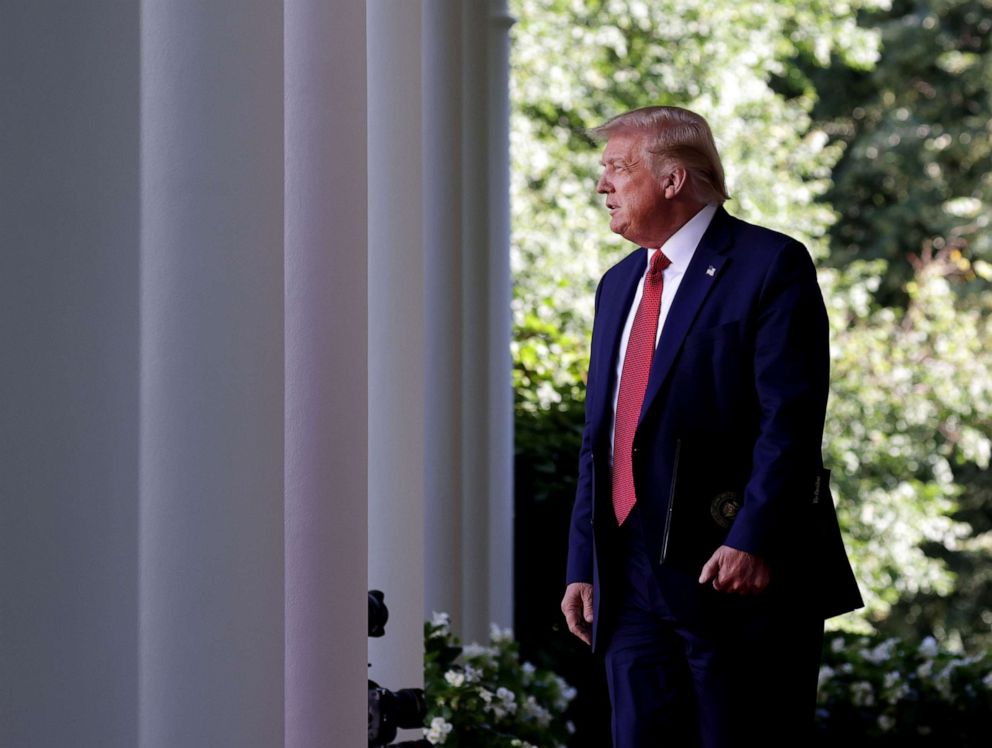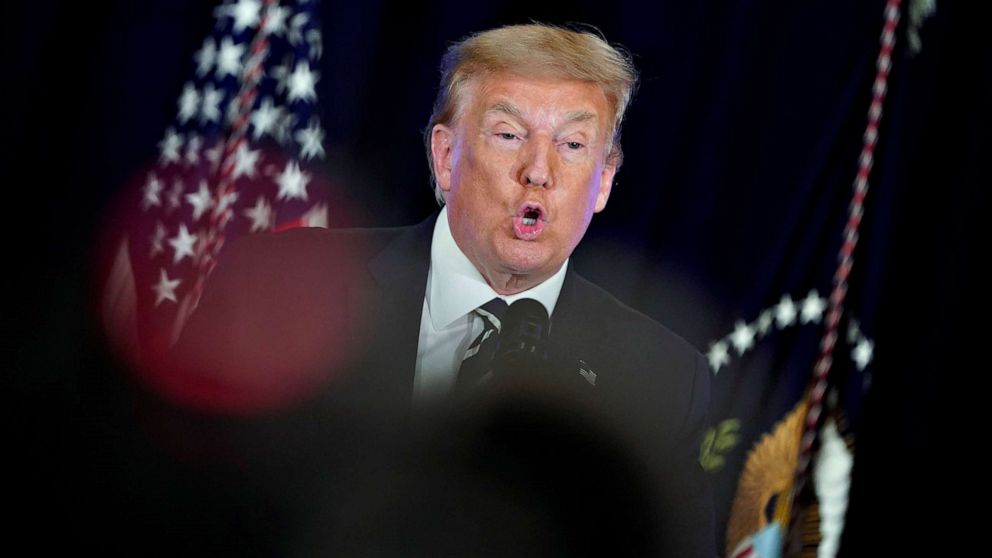Trump says he might accept GOP nomination at 'Great Battlefield of Gettysburg'
President Donald Trump announced on Twitter Monday that he will accept the Republican nomination for president on Aug. 27 at either the White House or at the battlefield in Gettysburg, Pennsylvania -- site of one of the bloodiest battles of the Civil War and where Abraham Lincoln delivered one of the most famous speeches in American history.
"We have narrowed the Presidential Nomination Acceptance Speech, to be delivered on the final night of the Convention (Thursday), to two locations - The Great Battlefield of Gettysburg, Pennsylvania, and the White House, Washington, D.C. We will announce the decision soon!" Trump said in a tweet.
At a White House news conference Monday evening, Trump expanded on the idea of delivering the speech from Gettysburg.
"Well, I think it's -- I've been to Gettysburg numerous times. It's a national park, it's a national historic site, it's incredible. You know, it's the history. It's incredible, actually, to me. It was a very important place and is a very important place in our country, so we're are looking at that," he said.
Questioned if he envisions an audience at either location, the president said, "You could. You have plenty of room at both locations."
Earlier in the day, asked to characterize the message that Trump would send, if Gettysburg were his choice, White House press secretary Kayleigh McEnany responded, ''I won't get ahead of the president as to what his convention speech will look like. But the president has done a lot to bring this country together.
"We've faced unprecedented challenges and he's worked to make sure that the American people are best equipped and taken care of to rise above the challenges that we face. And he has a strong record of the achievement that he will be touting on that day," she said.

Known to favor dramatic and patriotic backdrops, such as his July Fourth weekend Mount Rushmore campaign-style appearance, Trump likely would take advantage the optics of delivering a speech where Lincoln, emphasizing unity, the founders' ideals and the soldiers' sacrifice, said, "The world will little note, nor long remember what we say here, but it can never forget what they did here."
"Fourscore and seven years ago our fathers brought forth, on this continent, a new nation, conceived in liberty, and dedicated to the proposition that all men are created equal. Now we are engaged in a great Civil War, testing whether that nation, or any nation so conceived, and so dedicated, can long endure," Lincoln began his 272-word Gettysburg Address on Nov. 19, 1863, ending with the resolve "that this nation, under God, shall have a new birth of freedom -- and that government of the people, by the people, for the people, shall not perish from the earth."
Trump has long compared himself to the president who ended slavery, telling Axios in a recent interview he's done more for the Black community than anyone -- "with the possible exception of Abraham Lincoln."
As a candidate, Trump delivered a speech in Gettysburg in October 2016, where he called it an "amazing place," slammed the "totally rigged" political system and suggested the U.S. was as divided as it was during the Civil War.
Trump also threatened at the event to sue the women who've accused him of sexual misconduct -- but he never did.

Though the Battle of Gettysburg marked a turning point for Union forces, memorials to Confederate soldiers are on prominent display around the battlefield and cemetery. Trump has defended keeping Confederate monuments as part of the nation's "legacy."
In July, amid growing calls nationwide to take down Confederate statues, the National Park Service issued a statement on those at Gettysburg, saying "these works and their inscriptions will not be altered, relocated, obscured, or removed, even when they are deemed inaccurate or incompatible with prevailing present-day values," unless directed by legislation or the National Park Service director.
Either venue -- Gettysburg or the White House -- is likely to spark controversy, since both are historic sites on federal government land, and Trump's campaign speeches are, of course, overwhelmingly partisan.
Gettysburg might be the favored option of White House chief of staff Mark Meadows who said he would prefer Trump give his speech "miles and miles away" from the White House after the president publicly floated the idea of having it there.
"Those decisions are still in flux, but I can tell you what I'm advocating for is miles and miles away from here," Meadows said, referring to the White House in an interview with "Full Court Press with Greta Van Susteren" which aired Sunday
In a surprise reversal, Trump last month said he told the Republican National Committee to cancel convention events in Jacksonville, Florida, including his acceptance speech, as cases of the coronavirus surged in the state, despite Trump having previously demanded the RNC to relocated events to Jacksonville from Charlotte, North Carolina -- in large part to avoid social distancing and mask requirements.
The battlefield's outdoor venue would allow for a larger crowd and address questions about health concerns for those attending.
Trump said last week delivering the speech from the White House, on the last day of the Republican National Convention, "would be easiest from the standpoint of security."

"We are thinking about doing it from the White House because there's no movement. It's easy, and I think it's a beautiful setting and we are thinking about that. It's certainly one of the alternatives. It's the easiest alternative, I think it's a beautiful alternative," he told "Fox and Friends."
Trump has since faced backlash for that suggestion with some pointing to potential ethics violations.
The president and vice president are exempt from the Hatch Act, a federal law which forbids the use of executive branch employees and property for some forms of political activity, but ethics experts say the move violates the norm of drawing a firm line between the White House and political campaigns.
Even Senate Republicans raised eyebrows at the prospect.
"I assume that's not something that you could do. I assume there's some Hatch Act issues or something," Sen. John Thune, R-S.D., the second highest-ranking Republican senator, said last week. "I don't know the answer to that and I haven't heard him say that, but I think anything to do with federal property would seem to me to be problematic."
Sen. Ron Johnson, R-Wisc., also said the president is "probably not allowed" to give his speech at the White House, adding he "probably shouldn't do it."
ABC News' Will Steakin and Justin Gomez contributed to this report.




